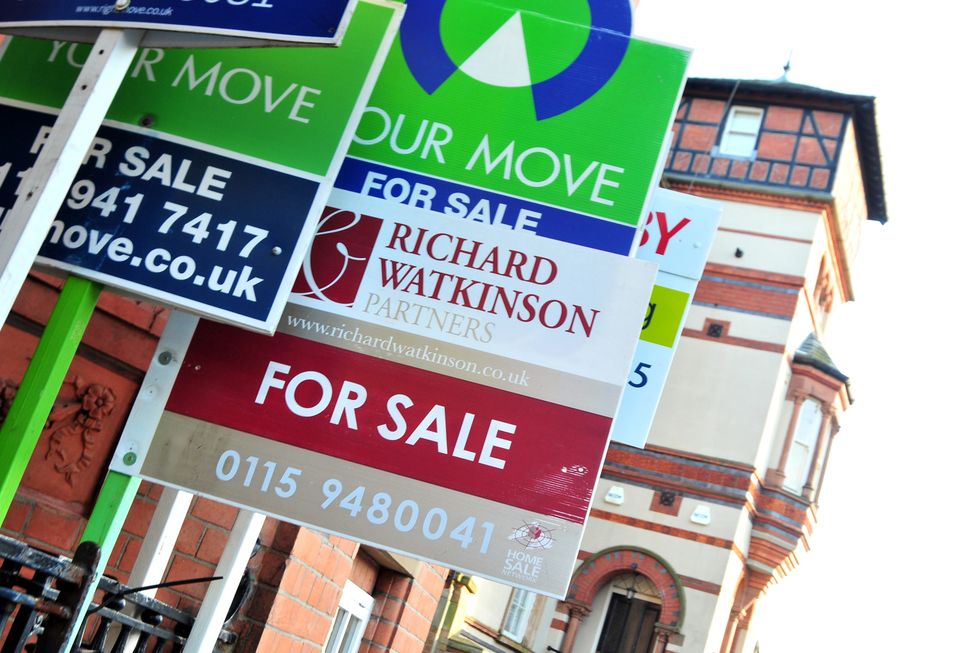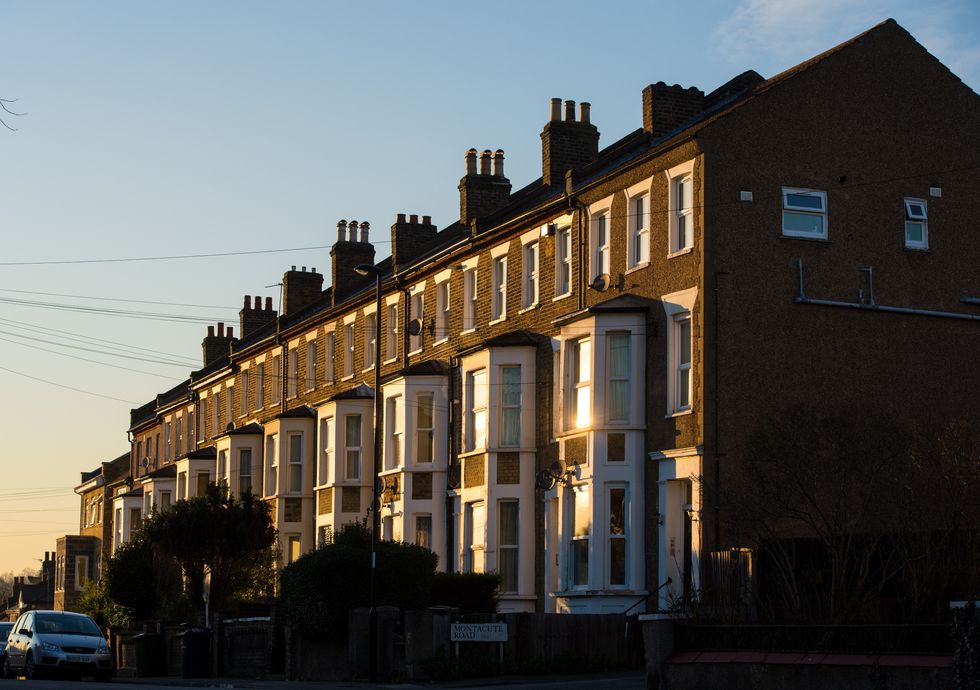New property law passed this week means a type of house will no longer be sold in England and Wales

A new property legislation means that Britons will no longer be able to purchase new leasehold houses. Rather, every new house in England and Wales will be freehold – aside from exceptional circumstances.
This comes as the UK Government announced that the Leasehold and Freehold Reform Act has become law this week. From now on, homeowners will “receive more rights, power and protections over their homes”.
The new Act relates to freehold and leasehold homes. The experts at Propertymark said: “If you own the freehold to your home, it means that you own the building and the land it sits on.
“If your property is leasehold, you own the property but not the building or land and must pay ground rent to the freeholder.”

‘If your property is leasehold, you own the property but not the building or land and must pay ground rent to the freeholder’
PA IMAGES
The Department for Levelling Up, Housing and Communities detailed what the passing of the act means for Britons who live in leasehold homes or are looking to buy.
He said: “The Act will make it easier and cheaper for leaseholders to buy their freehold, increase standard lease extension terms to 990 years for houses and flats, and provide greater transparency over service charges. The Act will also remove barriers for leaseholders to challenge their landlords’ unreasonable charges at Tribunal.
“It will further ban the sale of new leasehold houses other than in exceptional circumstances, end excessive buildings insurance commissions for freeholders and managing agents, and scrap the requirement for a new leaseholder to have owned their house or flat for two years before they can buy or extend their lease.
“The new powers also grant freehold homeowners on private and mixed tenure estates the same rights of redress as leaseholders, and equivalent rights to transparency over their estate charges, and help more leaseholders take over the management of their property if they want to.
“Leaseholders in some buildings are barred from taking over the management of the site or buying its freehold if more than 25 per cent of its floor space is commercial – such as shops or offices on the ground floor. But this limit will now be increased to 50 per cent to enable more homeowners to access right to manage or the right to a collective enfranchisement.”
The experts at Propertymark suggested that buying a leasehold can open you up to several problems. In some leasehold agreements, homeowners must seek permission to make cosmetic alterations, and some even incur a fee.
According to their survey of 1,000 people, 31 per cent struggle to attract a buyer for their leasehold house because they do not own the freehold.
The passing of the act is good news for leaseholders. As well as banning the sale of new leasehold houses, it will scrap the presumption that leaseholders pay their freeholders’ legal costs when challenging poor practice.
It will also ban the “opaque and excessive” building insurance commissions for freeholders and managing agents. These will be replaced with “transparent and fair” handling fees.
The passing of the act will also remove the requirement for a new leaseholder to have owned their house or flat for two years before they can extend their lease or buy their freehold.
As for those buying in Scotland, this is not an issue as leaseholds were stopped in 2004.
LATEST DEVELOPMENTS:

The passing of the act will mean that homeowners ‘receive more rights, power and protections’
PA IMAGES
Head of Policy and Campaigns at Propertymark, Timothy Douglas, commented: “The recently passed leasehold legislation is far from perfect, but it is the start of reform to outdated legislation that was not fit for purpose.
“Once implemented the new laws will make it more commonplace to extend a lease and information about leasehold property will be made more transparent, which will make buying, selling and renting leasehold property easier.”
But according to the expert, the passing of The Leasehold and Freehold Reform Act is not a perfect solution.
He said: “The legislation is a missed opportunity to tackle some key issues. Propertymark argued that the legislation needed to go further to incorporate the recommendations for the Regulation of Property Agents.
“At a time where building safety regulations have increased and become more complex, it is shortsighted that policymakers were unwilling to see the benefit to consumers of qualifying and licensing the competency of those who work in the property sector.”
Source link




